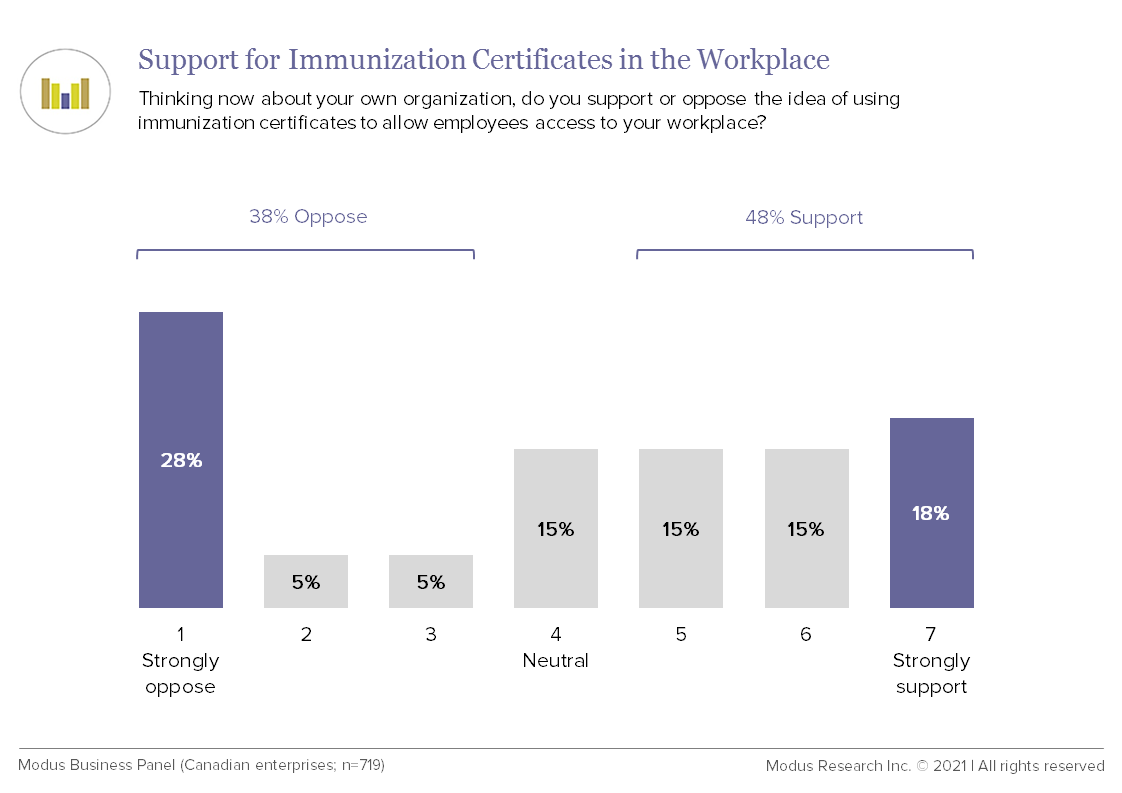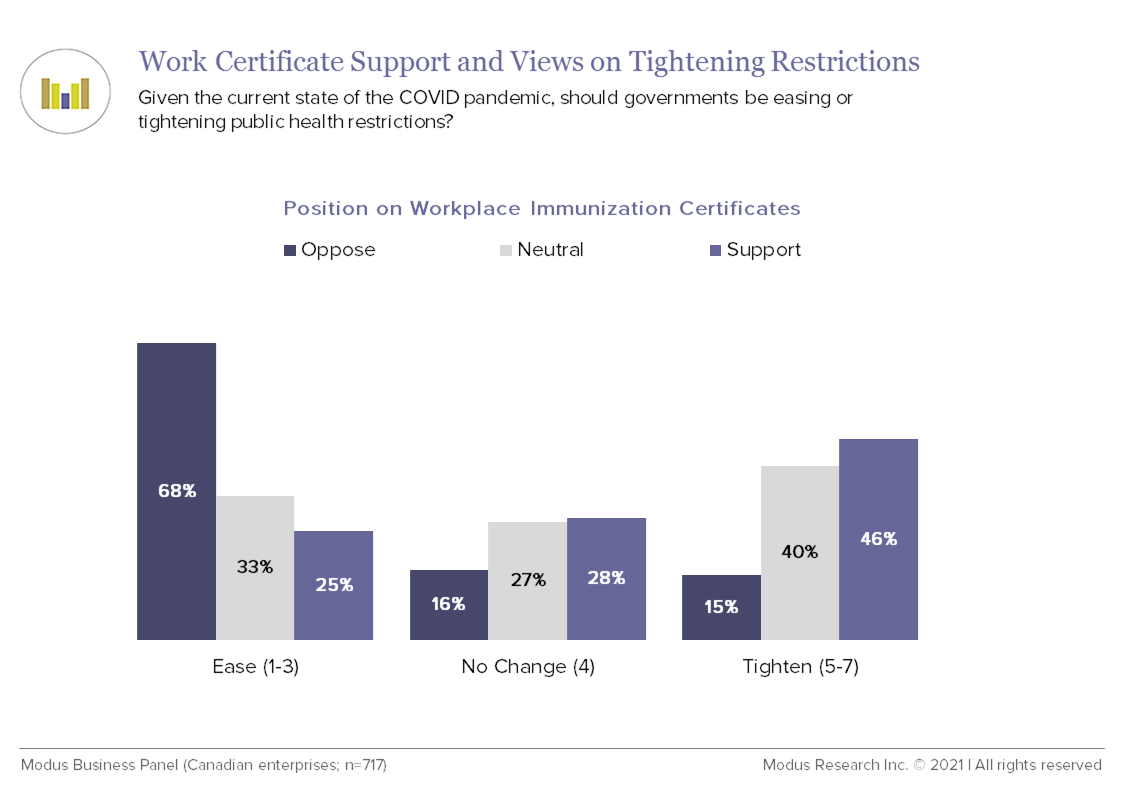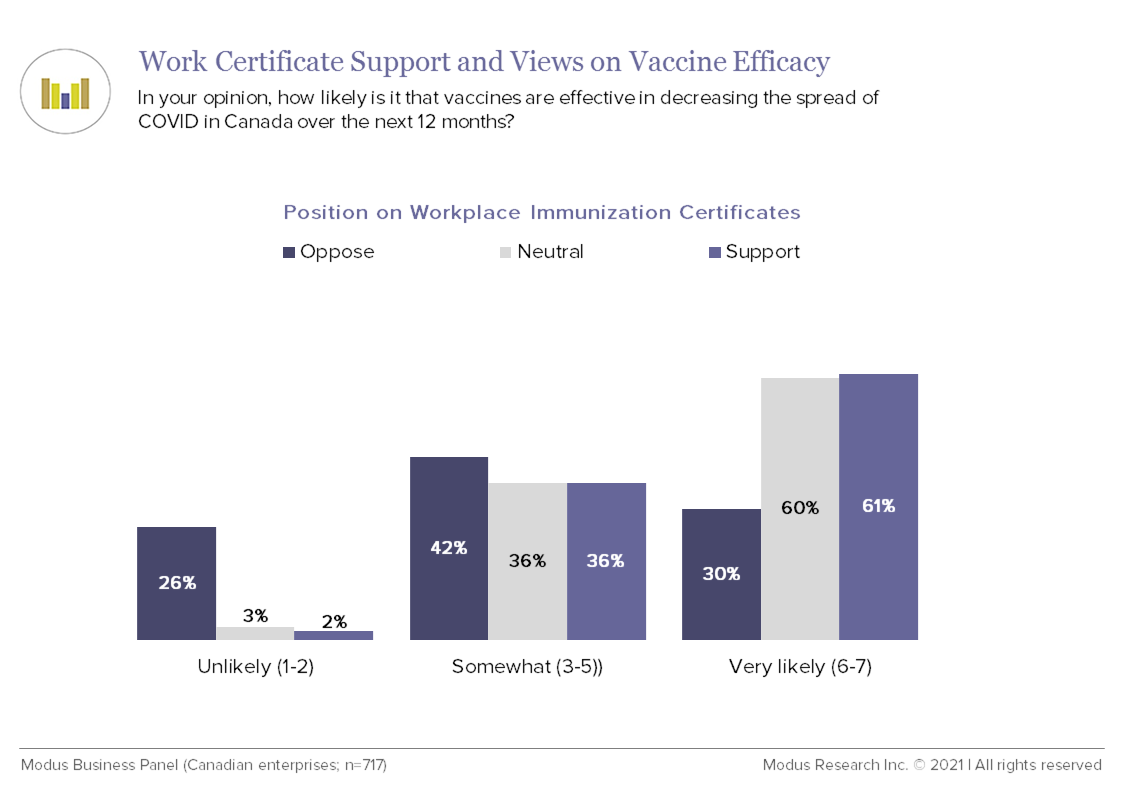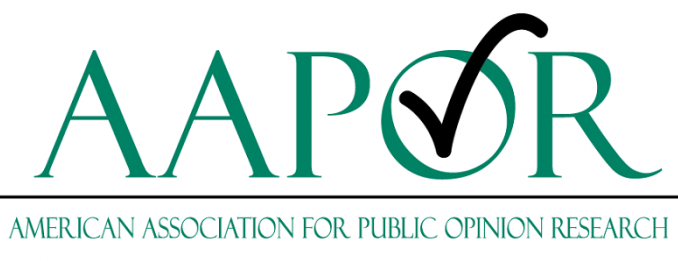Toronto, April 6, 2021
In the latest survey from The Business Monitor, released by Modus Research, Canadian executives were asked whether they support or oppose immunization certificates in general as well as in the workplace.
While there is a general leaning towards supporting immunization certificates, there is also notable polarity across business leaders. Further, support erodes when certificates are considered for access to the workplace.
Support and opposition to immunization certificates correlates strongly with views on public health restrictions and the perceived efficacy of vaccines.
While there is overall support for immunization certificates, there is also strong polarization on the issue.
There is unusually strong aggregation of responses on the far ends of the scale with a small amount of neutrality. These results point to fairly entrenched positions for half of Canada's business leaders at a very broad level of consideration for immunization certificates/passports.


The idea of using immunization certificates to allow access to the workplace causes a significant reduction in support.
Overall support dips below the majority level and those strongly opposing immunization certificates in the workplace outnumber strong supporters by a full 10 points.
Positions on workplace immunization certificates correlate strongly with stance on public health restrictions.
Over two-thirds of those who oppose workplace immunization certificates also favour easing public health restrictions, while few (just one in six) favour tightening. Conversely, only a quarter of business leaders who favour immunization certificates support easing restrictions.


Business leaders who oppose certificates are skeptical about the efficacy of vaccines
Business leaders who oppose workplace immunization certificates and notably more skeptical about the efficacy of COVID vaccines than either those who are neutral or supportive. Both of the latter groups are twice as likely as opposers to be confident in the effectiveness of vaccines curbing the spread of COVID over the next year.


